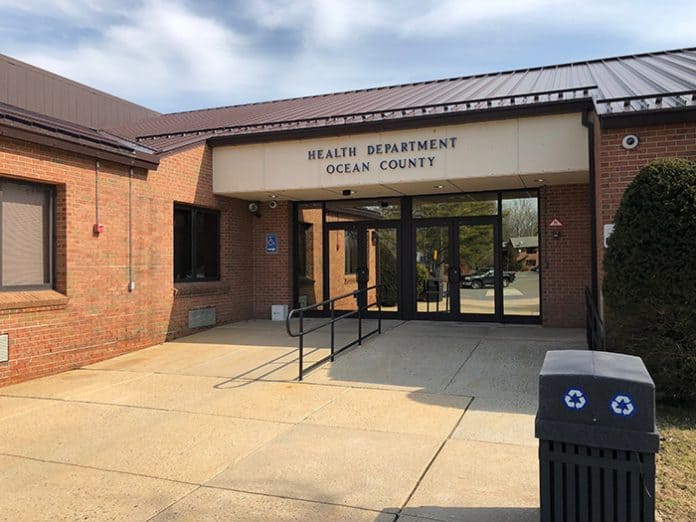
TOMS RIVER – Officials from the Ocean County Health Department (OCHD) are gearing up once again to perform water testing at the county’s public beaches. Established in the 1970s, the Ocean County Health Department Cooperative Coastal Monitoring Program (CCMP) has proved to be one of the nation’s longest running and most comprehensive beach testing programs.
“It’s a big job every summer season, but the Ocean County Health Department will once again monitor most of Ocean County’s ocean, bay, river and lake beaches along with swimming pools, hot tubs and water parks,” said Ocean County Freeholder Gerry P. Little. “The Ocean County Health Department inspects water quality every week at 68 public bathing beaches throughout the county from mid-May through Labor Day 2019,” says Gerry P. Little, liaison to the Ocean County Board of Health.
Water samples will be taken from the county’s salt and freshwater swimming beaches each week. These samples will then be tested for two types of bacteria – enterococcus and E.coli. If the results come back with higher than acceptable levels, the water is immediately retested and the town is notified. After the second high reading, the beach is closed and tested daily until bacteria levels return to normal.
While closures aren’t very common, they can occur after a heavy rainfall as water runoff washes animal waste, lawn care products and other bacteria into the water.
“Everyone can pitch in to help make a difference to keep our waterways and beaches clean by picking up after our pets and not throwing trash or cigarette butts onto the streets,” stated Daniel E. Regenye, Ocean County Health Department Public Health Coordinator. “This waste eventually empties into lakes, rivers and the bay and contributes to our beach closings.”
OCHD officials provide the following tips for staying safe at the beach:
- Observe swimming advisories; do not enter the water at a beach under a swimming advisory.
- Avoid swallowing water when swimming; natural waters may contain disease-causing organisms that can cause gastrointestinal illness if swallowed.
- Avoid swimming for a few days after heavy rainfall; bacteria levels are likely to be high and disease-causing organisms are more likely to be present after rainfall due to pollution from land runoff and other sources.
- Prevent direct contact of cuts and open wounds; natural waters may contain disease-causing organisms that may cause skin infections.
- Do not swim if you are ill or have a weakened immune system; some organisms are opportunistic and may only cause illness when you are already ill or your immune system is weakened.
- Shower with soap after swimming; showering helps remove potential disease-causing organisms.
- Swim away from fishing piers, pipes, drains, and water flowing from storm drains onto a beach.
- Do not dispose of trash, pet waste, or dirty diapers on the beach.
According to Regenye, OCHD posts water quality reports for all monitored beaches at ochd.org. Up to the minute reports can be obtained by calling the 24/7 hotline at 732-341-9700 ext. 7776 or at 1-800-342-9738 ext. 7776.
“Visitors from all over the country and Ocean County come to enjoy the 44 miles of beautiful beaches and the many other recreational waterways and the Ocean County Health Department wants to ensure everyone is protected and safe,” added Little continues.
For more information regarding the OCHD Cooperative Coastal Monitoring Program, please call 732-341-9700 ext. 7685 or follow the Health Department on Twitter@OCpublichealth or like us on Facebook.






